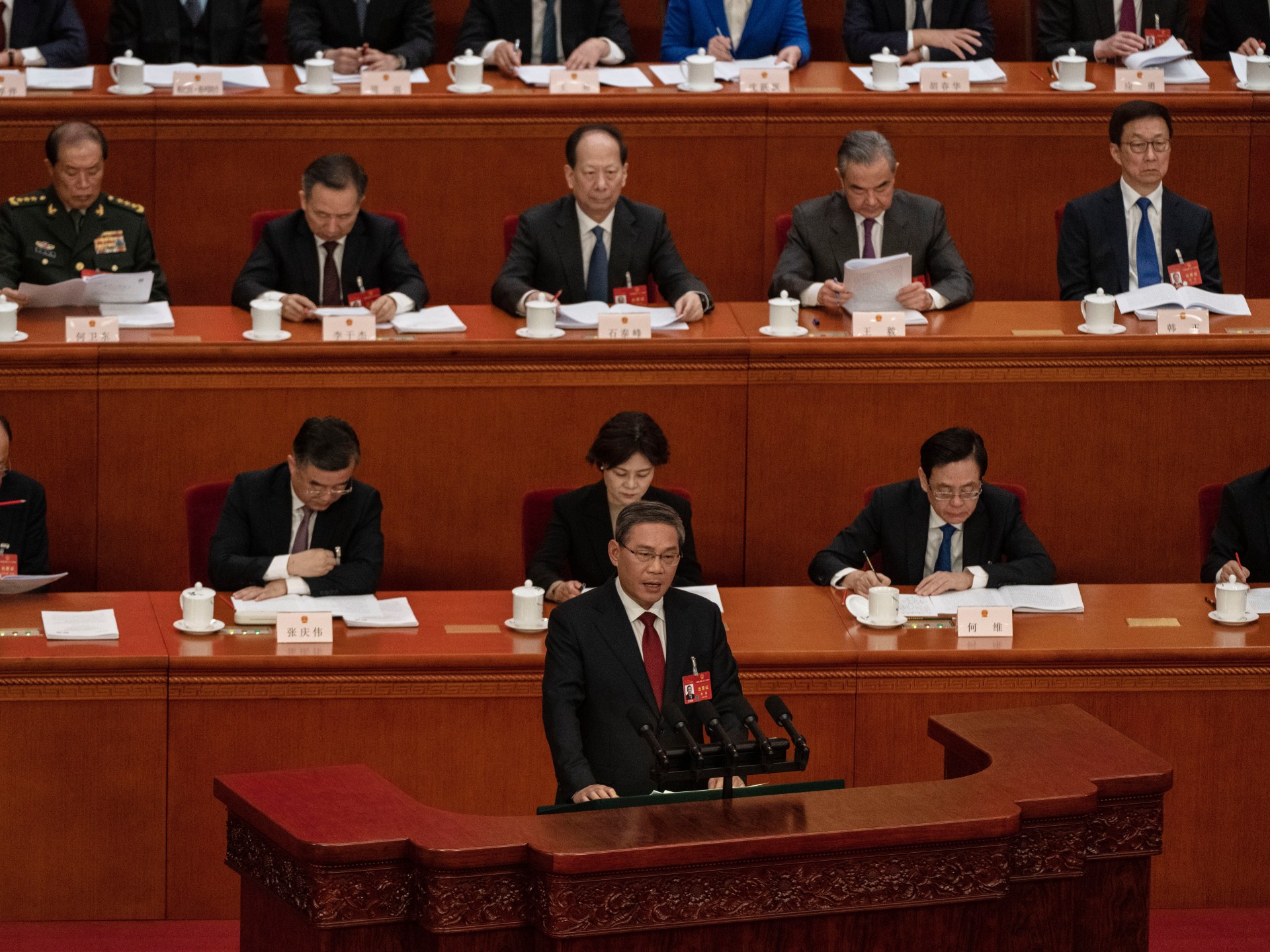Li Qiang warned that achieving this year's economic goals will not be easy (Getty)
China today set its goal for economic growth at 5% for the year 2024, an ambitious number that officials in the world's second-largest economy acknowledged that achieving it "will not be easy."
Chinese Prime Minister Li Qiang revealed this figure, in addition to some economic policies and directions that involve modifying the economic model, during the annual meeting of the National People's Congress, which is the country's legislative body governed by the Communist Party led by President Xi Jinping, and which lasts a week.
The targeted growth rate will require stronger government stimulus from China to be able to achieve it, as the economy still depends on investment in government infrastructure, which has led to the accumulation of debt on regional governments.
In front of thousands of delegates, Li Qiang warned that "achieving this year's goals will not be easy," noting that "the foundations for sustainable economic recovery and growth in China are not solid enough."
Last year's session of the Council witnessed the inauguration of Xi Jinping for an unprecedented third presidential term, strengthening his position as the most prominent leader of the Asian giant since Mao Zedong.
This year, thousands of delegates attending the conference find themselves facing a series of economic and security challenges, including a decline in the real estate sector, a high youth unemployment rate, and a global economic slowdown that has led to a decline in demand for Chinese products.
Xi Jinping (left) speaks to Li Qiang during the National Council meeting (Getty)
Obstacles to growth
The announced growth target for the year 2024 is in line with what was set for the previous year, but it remains below rates that have prevailed for many years and were higher than 10%.
The growth rate in China last year was 5.2%, which was one of the lowest recorded since the 1990s.
Wang Tao, chief China economist at UBS, said: “We do not consider the 5% growth target to be modest. On the contrary, we believe it is ambitious.”
She continued, "The real estate market continues to decline and has not yet reached the bottom, which imposes downward pressure on the economy," suggesting that this will have a "negative impact on the government's local financing and spending, and household wealth and spending."
The real estate crisis, deepening economic downturn, stock market collapse, and worsening local government debt problems have increased pressure on China's leaders to respond to these calls.
In his speech, Li Qiang warned of the presence of “remaining risks and hidden dangers” in the Chinese economy, but China has for years avoided confronting the pressures that its economy is suffering through a broad rescue plan, for fear that this would impose great pressure on the state budget, and experts do not believe that Beijing’s approach in... The coming period will be different from that.
According to a government work report, China intends to increase its military budget by 7.2% this year, reaching 1.665 trillion yuan ($231.4 billion).
Investor concerns
In an effort to allay investors' fears, China pledged today to open "new channels" for international trade, in addition to reducing tariffs on advanced technologies.
Analysts expect China to lower its annual growth expectations in the future, and the International Monetary Fund expects economic growth in China to reach 4.6% this year and then decline further in the medium term to about 3.5% in 2028.
China achieved growth of 5.2% last year and is expected to decline to 5% this year (Shutterstock)
Great Chinese concern
Two days ago, a spokesman for the Chinese People's Political Consultative Conference - the highest political advisory body in China - announced that the economy and securing jobs for young people constitute a "major concern", just before the Chinese Parliament began its annual session.
The meetings of the annual conference of the ruling Communist Party come at a time when the second largest economy in the world faces a set of challenges, including:
The long-standing housing crisis.
Low domestic consumption.
Continued unemployment among youth.
The youth unemployment rate officially reached about 15% at the end of 2023, after the Census Bureau modified the methods for calculating this percentage.
The Census Bureau had stopped publishing the politically sensitive unemployment rate for several months starting last summer, at a time when the unemployment rate rose to well above 20%.
Liu said that China's economy still has good foundations and favorable conditions to promote high-quality development, adding that the country has also demonstrated its ability to withstand external shocks and internal difficulties.
Source: Agencies

